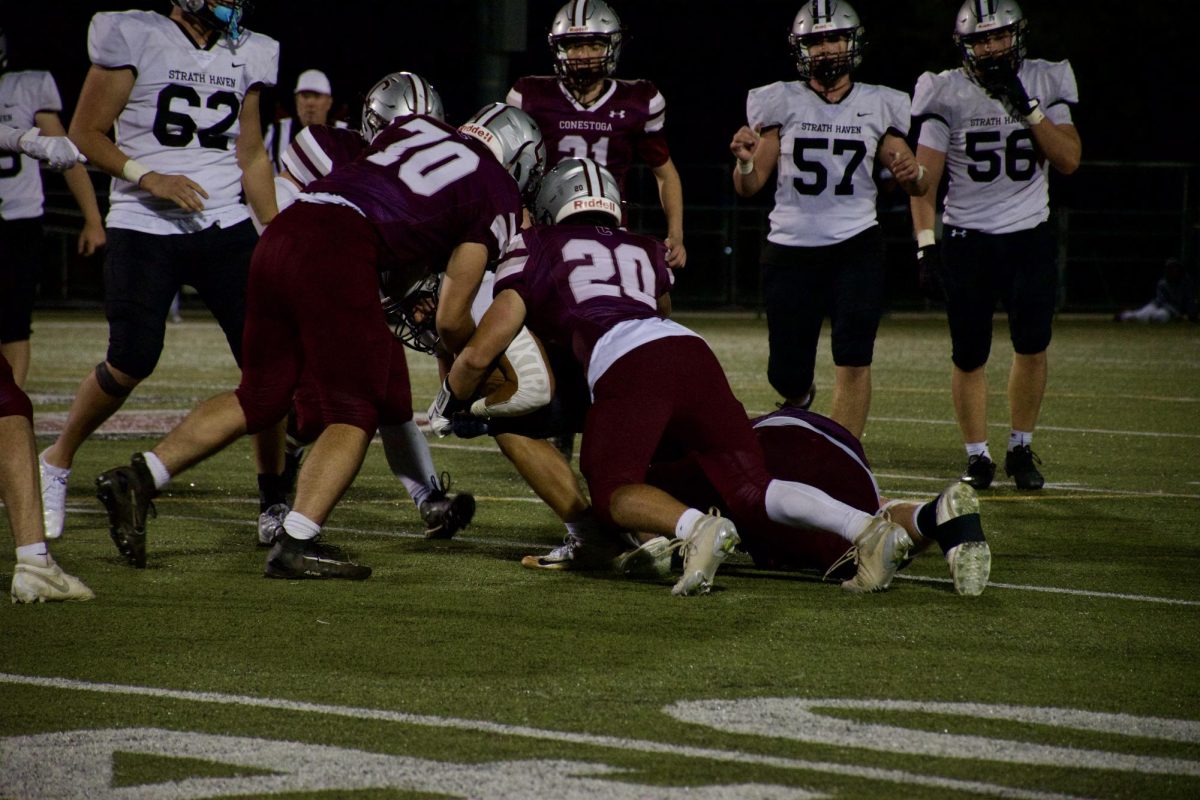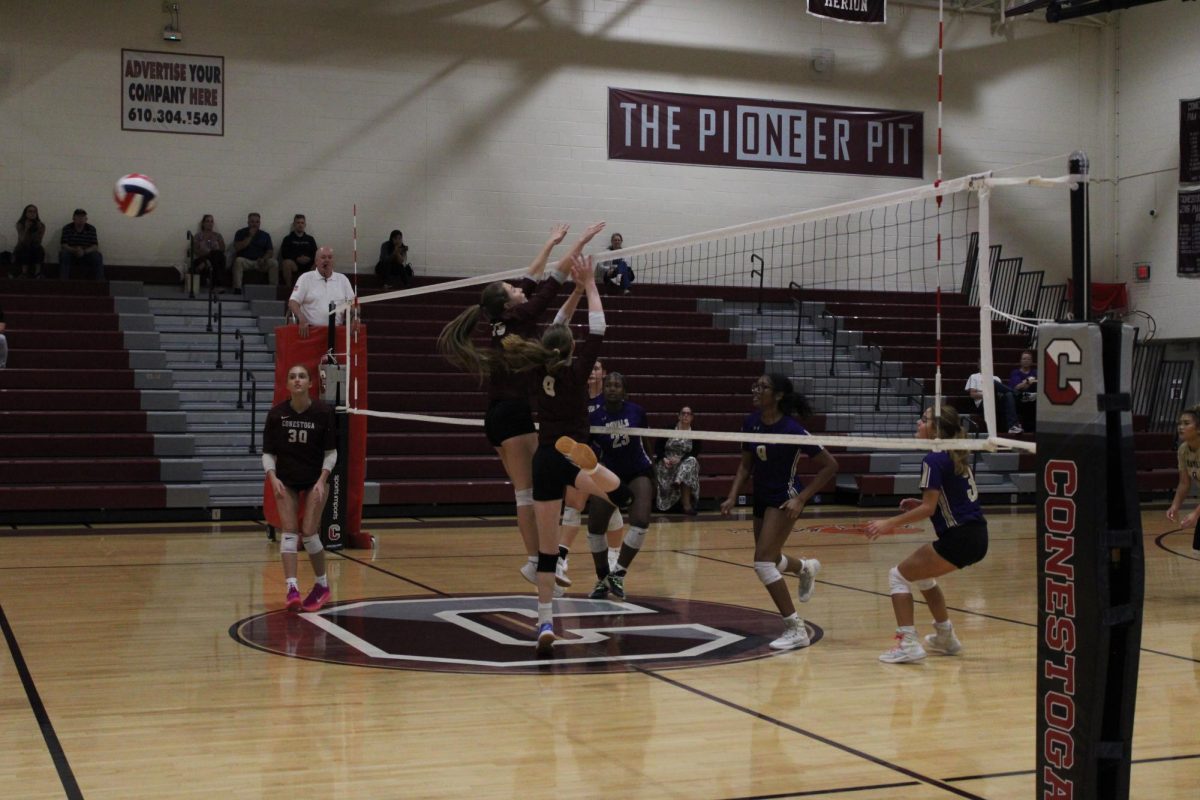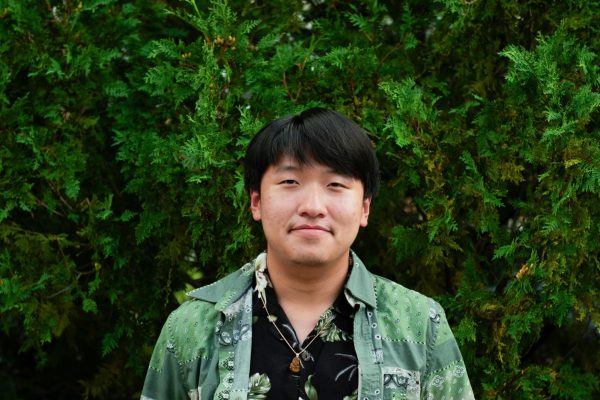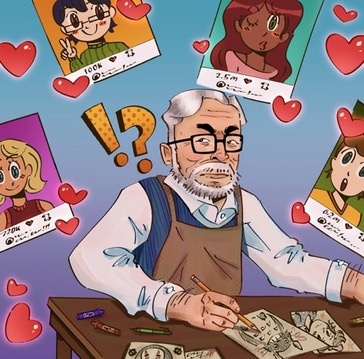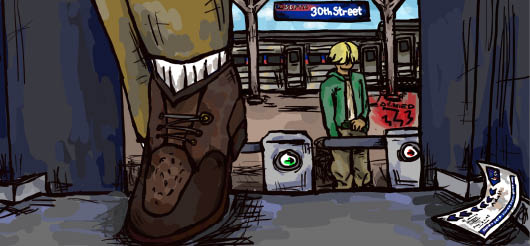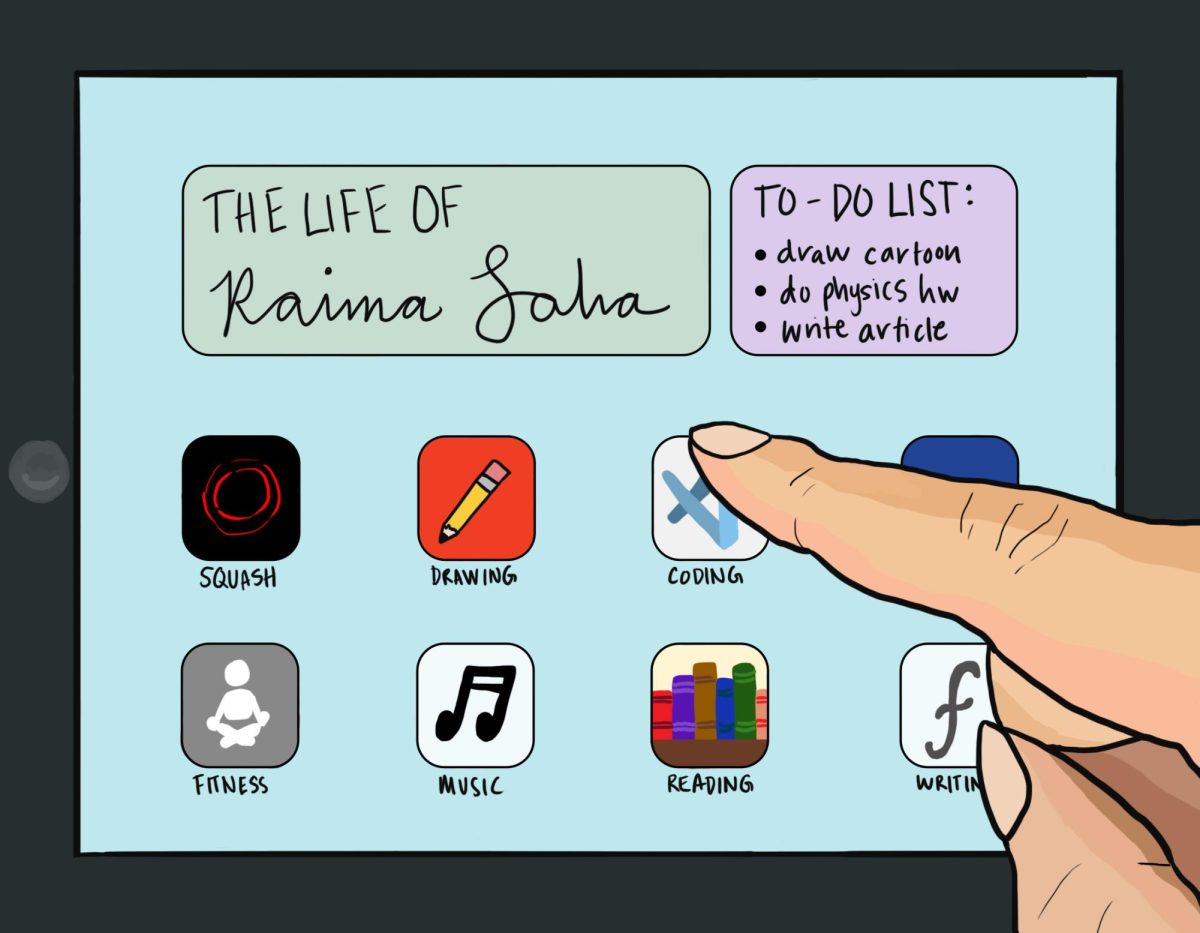That title is a lie. Sort of.
When I first moved to this district in eighth grade, I made a friend during my first week, and she was already calling me gay.
She wasn’t right, but she wasn’t wrong. “I’m a percentage gay” is what I’ve told a few friends until this point. Some would stare me down with a hysterical, bombastic side-eye whenever I would walk with a certain guy to his seventh period class. Others would giggle with me after we found the Instagram account of some guy I found “cute” at a convention.
Near the end of summer last year, I decided to break out of my shell and slowly come out to some of my friends. I told them that I was pansexual.
It was cathartic, not just because I said it out loud, but also because of the complicated relationship I have with boys. From my dad who tells me to “man up” and find a good wife in the future to the boys from my old school who abandoned tag to play basketball, many of my conflicting feelings about masculinity became insecurities.
Sometimes, I just wish I weren’t a boy. Until I moved to Berwyn, I was only friends with girls who matched my quiet, gentle and reserved nature, while I drifted away from some guy acquaintances due to separate interests. Despite this, I felt that I was stuck in the middle. With seven years of playing boys lacrosse, I wasn’t enough of a boy to play aggressive sports, but I also wasn’t a girl, so I would never be in the full loop of what my friends were up to.
At ’Stoga, I’ve formed deeper connections after joining some groups and clubs. Still, I hold onto my insecurities and find myself juggling different personas that I don’t always know how to manage. The majority of friends I’ve managed to make here are girls, many of whom I talk to with chaotic, unhinged slang like saying “I hate men” in unison. Yet, I can’t help but wonder if some associate me with the stereotypical “boy,” similar to the way I’ve associated some guys with toxic masculinity.
I’ve found befriending guys to be a bit of a learning curve. Most boys probably won’t even approach me, and if they do, our interactions can be summed up in head-nodding or dapping them up with a crisp clap.
I struggle to identify myself — not just through means of internal thoughts but also how I see myself, how I hear myself.
When talking to most guys, my voice quivers in an attempt to deepen my voice like I’m auditioning for manhood. And whenever I get called “bro” by anyone, I don’t know how to respond. I just can’t get behind myself saying “bro” to anyone; when you have an unemotional-sounding lilt and fry in your voice, there’s no choice but to resort to silence.
I’ve pondered whether weird looks were just internal or if I’m genuinely in the wrong place at the wrong time with the wrong body. Every student here goes through the process of filling out Section 5, Health History, of their PIAA forms before the fall sports season, answering question 43: “Are you trying to gain or lose weight?” Deliberately, I chose “Yes.”
I started cross country partly because of where I stood on the percentile charts as told by my doctors, labeling me as overweight. Often, I will see a crowd of shirtless guys at practice who seem confident with their bodies and defined abs. It is hard not to compare — especially when I start believing that I’m lagging behind the standard of a “real” man.
This feeling isn’t new. I have a photo of myself saved in my phone from Aug. 19, 2019 that my mom took because she said I looked handsome, even though deep down I felt queasy with my oversized legs cramped in my chair. I didn’t feel handsome. I’ve carried this view of myself to the point where I cut down my meals, skipped dinner and rationalized portions just for a flatter stomach so that I wouldn’t stray off the vision of looking like a man.
Watching “For teens who keep their shirts on at the pool,” a YouTube short film by Floridian teenager Santiago Salazar, which features Salazar and his friend as they navigate their insecurities about their different body types, reminded me that I’m not alone in this pitfall of anxiety regarding my body shape. I’ve never been able to go to the pool or beach comfortably without a shirt on, not to mention I’ve always made sure during freshman year to hold onto my undershirt tightly in the locker rooms when changing out of my uniform.
However, I don’t fret about having the “ideal body” as much as I did before. Rather, I aim for the simple — yet at the same time excruciating — goal of loving myself and letting go of those unhealthy microaggressions I have about others.
I don’t exactly hate boys. It’s more so the awkward sentiment I feel between myself and other guys whom I don’t fully know. Some of my guy friends do indeed play basketball, but they are not the stereotypical boys I imagined. I’m fortunate to have friends from such a wide demographic here at ’Stoga, whom I will always be grateful for. Because of my peers, I have a reason to keep cracking those puns, keep holding my head high and keep smiling for everyone, even if I don’t exactly feel like I belong. At the end of the day, I make the most out of my insecurities to teach myself about acceptance, self-appreciation and empathy for others.
So, this Pride Month, I’m confronting those complicated feelings, uncertainties and doubts. I just learned from a teacher that the Q in LGBTQ+ stands for queer and questioning, and I believe that I’m still in this stage, possibly for life. As far as I know, I’m as straight as that rainbow I drew in the cartoon to the left and we’ll just have to live with it, the same way that we must learn to take pride in what may feel unknown in our lives — because sometimes the most authentic identity is one that’s still in the works.
Jeffrey Heng can be reached at [email protected].





















































